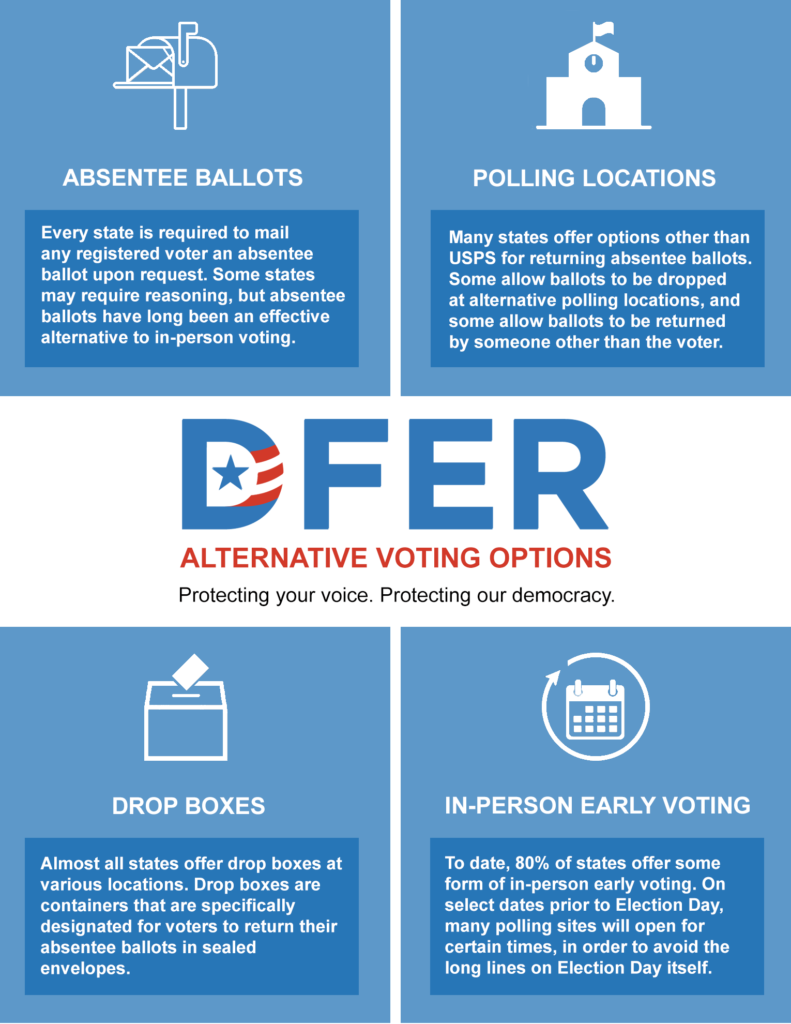This November presents the most important election in memory—all while a pandemic continues to rage across our country, and as the Trump Administration is doing everything in its power to silence voters in an undemocratic act of desperation fueled by a dangerous need to retain power.
But we do not have to be suppressed. Each of us can still be heard, and if we choose to stay home on Election Day for our own health or safety reasons, we can still vote safely and ensure our voice counts.
Below, please find safe alternative options to voting in person on Election Day.
- [faq p=11313]
- [faq p=11314]
- [faq p=11315]
- [faq p=11316]
Regardless of whether you decide to mail in your absentee ballot, take it to your local polling place, or a designated drop off box, election officials must receive all ballots by the time polls close on Election Day—Tuesday, Nov. 3. If you decide to brave the lines on Election Day, please remember to locate your correct polling place, maintain your distance as much as possible, and above all—MASK UP!
Let’s make sure ALL voices are heard, safely.
